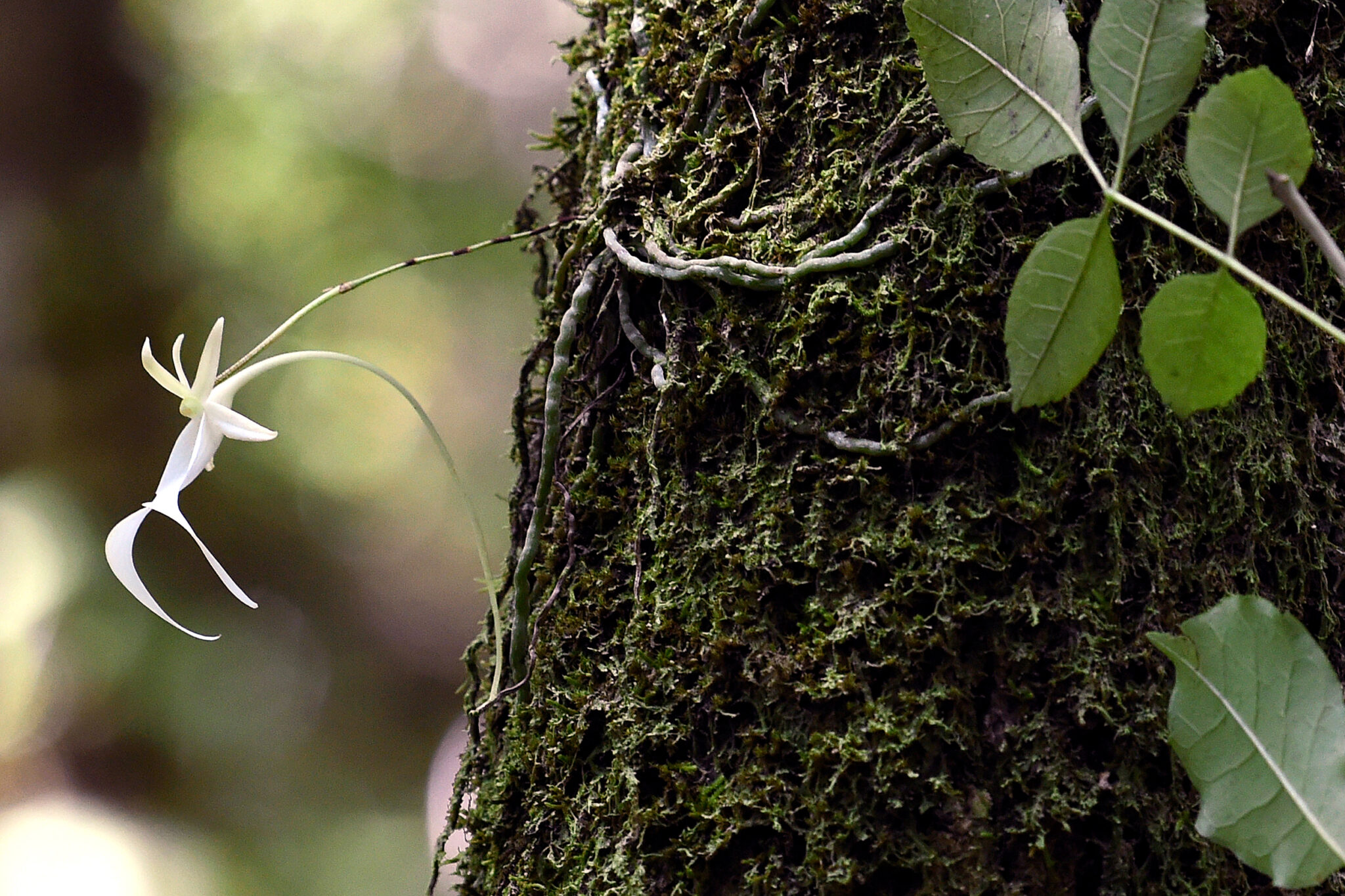FWS Proposes Endangered Species Status For Rare Orchid, Despite April Order Rescinding Almost All ESA Protections
 An uncommonly found ghost orchid blooms in the swamp at Fakahatchee Strand Preserve State Park in Copeland, Fla. Credit: Rhona Wise/AFP via Getty Images
An uncommonly found ghost orchid blooms in the swamp at Fakahatchee Strand Preserve State Park in Copeland, Fla. Credit: Rhona Wise/AFP via Getty Images
EDIT
Eventually, deep within the swamp, if you are lucky and the time of year is right, you may discover an elusive and mysterious flower suspended by spindly roots from Florida water ash, pond apple and bald cypress trees, as though the bloom is floating on air. In the trees’ shadows the flower can appear starkly, almost ghostly white. Two petals dangle longer than the rest, like the legs of a dancing spirit. No wonder the flower is called a ghost orchid. “Its rarity only increases the mystique of it,” said Elise Bennett, Florida and Caribbean director and senior attorney at the Center for Biological Diversity, an advocacy group. “It’s so delicate, and the fact that it’s still clinging to existence is just an incredible thing.”
EDIT
The Fish and Wildlife proposal involving one of Florida’s most famous flowers is among the more high-profile actions taken by the Trump administration under the Endangered Species Act. In the first months of his second term, President Donald Trump has targeted a vast gamut of environmental regulations and programs, including protections for the nation’s most imperiled plants and animals. Perhaps most notably, the administration issued a proposed rule in April that would rescind nearly all habitat protections for endangered species. The rule would redefine what it means to “take” a species protected under the Endangered Species Act, excluding harms caused by individuals, government agencies or corporations that involve habitat modifications or degradation.
A February move by the administration related to Trump’s “Unleashing American Energy” executive order called for revoking three Endangered Species Act regulations finalized under the Biden administration. The order directed the Fish and Wildlife Service to review and revise critical habitat designations to take into account how they may affect the economy and national security. Critical habitat is a legal term used to describe places that are considered vital for a species’ recovery.
EDIT
Mass firings across the federal government also have hampered the work of managing public lands and preserving imperiled species, conservation groups say. During the first Trump administration a mere 25 species were protected under the Endangered Species Act, the lowest number of any administration, according to the Center for Biological Diversity. Abdo said since January the National Park Service has lost 24 percent of its permanent staff. “We believe that staff have been pushed to the breaking point,” Abdo said.
EDIT
https://insideclimatenews.org/news/31102025/trump-administration-florida-ghost-orchid-endangered-species-act/
